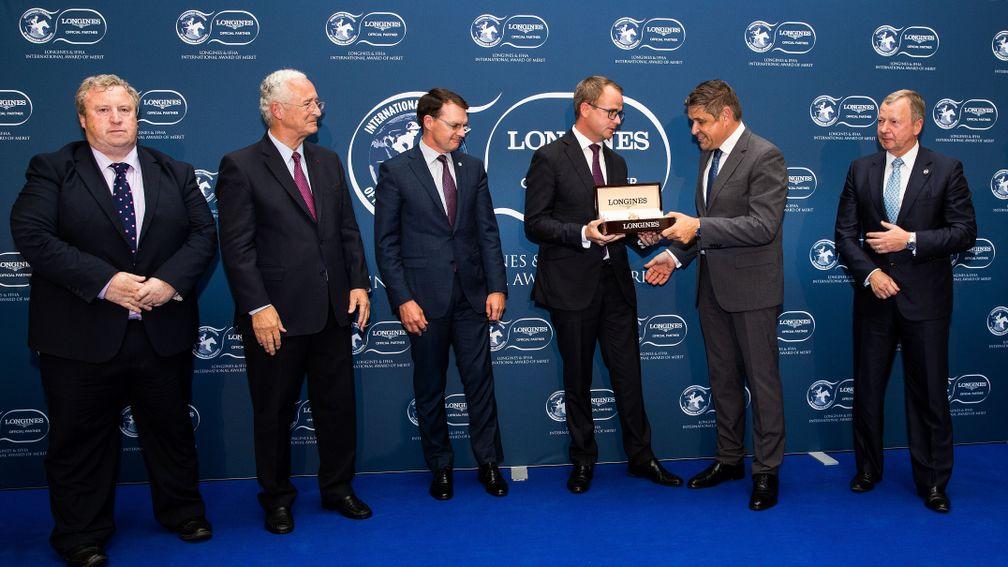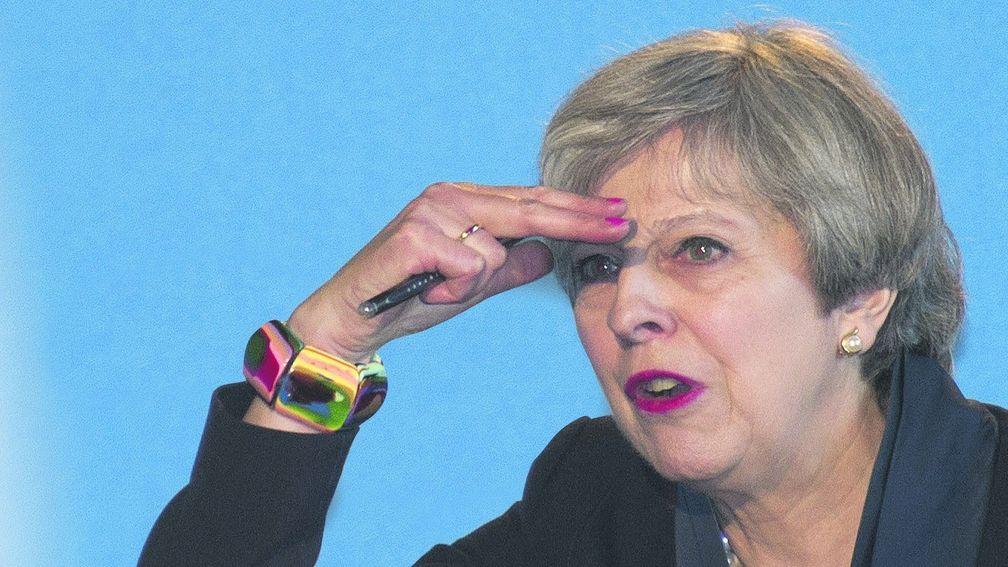Racing chiefs called unscheduled meeting as Brexit fears grow

Racing administrators from Britain, Ireland and France held an impromptu meeting in Dublin on Tuesday to prepare for every potential outcome to the Brexit negotiations – including the “worst case scenario” of a no-deal conclusion.
Louis Romanet, president of the International Federation of Horse Racing Authorities, said that while all involved remained confident of finding a solution whatever the Brexit outcome, concern was growing that no-deal was an increasing possibility and stressed the importance of a unified front among Europe's racing nations.
With officials gathered to mark the presentation of the Longines/IFHA International Award of Merit to Aidan O’Brien and the Magnier family, Horse Racing Ireland chief executive Brian Kavanagh called an unscheduled meeting – whose attendees included the BHA’s Will Lambe and Dr Paul-Marie Gadot of France Galop – to comprehensively review all the potential outcomes of the Brexit negotiations for the racing and breeding industries.
Romanet described the meeting as very positive and said that the three nations were all “pulling in the same direction.”
But he warned that the racing and breeding industries could be thwarted in their desire to preserve free movement of horses should Britain crash out of the European Union without a substantial deal in place for its future relationship with the EU27.
Speaking at Deauville on Wednesday, Romanet said: “We're trying to be prepared for all eventualities, knowing full well that it's difficult to know what will happen with the negotiations on a global level and that the negotiations around horses cannot go before those.
“Above all, we want to avoid individual parties or countries going off on their own. For me, the most positive aspect is that we're all pulling in the same direction and there are no differences.”
Romanet admitted that the current noises emanating from Theresa May’s government appeared unhelpful to the cause of preserving free movement of horses, but remains confident that an effective replacement can be found for the Tripartite agreement between the three countries.
And he said that it is Ireland who stands to be most disadvantaged should Britain become a third party country outside the European Union with no deal in place.

“The problem is that the [political] situation appears to be hardening from what I can see,” said Romanet. “I certainly feel that positions are becoming entrenched and that no deal is becoming a real possibility. We're trying to look at all the possible scenarios including the worst-case, which would be no-deal.
“The Tripartite Agreement is finished and the real problem is not with racehorses but for breeding stock,” said Romanet, whose organisation has been instrumental in co-ordinating efforts between the BHA, HRI and France Galop with the European Commission.
“How long can horses be allowed to stay [in a country]? Remember that 80 per cent of horses that travel from France to Ireland go through Britain.
"That means that the country most at risk is clearly Ireland, because most of the horses [bound for Ireland] either come from Britain or come via Britain.
Romanet added: “We remain confident. It’s true that there are economic interests greater than ours [in racing] but ours are still very important, while the wellbeing of horses is also important.
“If we go back to a situation of border controls and inspections of horses, we'll be looking at a huge investment which serves no purpose. We've estimated that, in France alone, we'd need to recruit the best part of 100 people for the state to operate border inspection posts. To recreate border inspection posts in 2018 would be completely ridiculous.
“The advantage is that we've always had very good relations with the European Commission and they've always respected the quality of our technicians and the health guarantees we've been able to provide. In that respect, we [France] are a model country and that gives us confidence. But it's going to be difficult.”
The gathering in Dublin – which follows a series of trilateral meetings and trips to Brussels, including meetings with officials in the cabinet of EU Agriculture Commissioner, Ireland’s Phil Hogan – means racing and breeding powers will be in a position to react as events unfold in the negotiations between May’s government and Commission chief negotiator Michel Barnier.
“The problem is that the people we're dealing with at the Commission are waiting on the overall deal from above,” said Romanet. “That deal rests with Theresa May and her colleagues, as well as the Irish EU Commissioner [Hogan], who'll have a big role to play.
“The ball isn't in our court but we must be ready to respond quickly when it comes back to us.”
Members can read the latest exclusive interviews, news analysis and comment available from 6pm daily on racingpost.com
Published on 15 August 2018inNews
Last updated 18:51, 16 August 2018
- The latest edition of the Racing Post is available to read online now - here's how you can access it
- How Smart View recorded a 76 per cent profit at the Cheltenham Festival
- Smart View is available on the Racing Post app - how to read the revolutionary new racecard
- Levy reform talks 'accelerating' as clock ticks down to April deadline for agreement
- Kieran Shoemark lands another plum Meydan ride for Gosden stable on Trawlerman in Saturday's Dubai Gold Cup
- The latest edition of the Racing Post is available to read online now - here's how you can access it
- How Smart View recorded a 76 per cent profit at the Cheltenham Festival
- Smart View is available on the Racing Post app - how to read the revolutionary new racecard
- Levy reform talks 'accelerating' as clock ticks down to April deadline for agreement
- Kieran Shoemark lands another plum Meydan ride for Gosden stable on Trawlerman in Saturday's Dubai Gold Cup